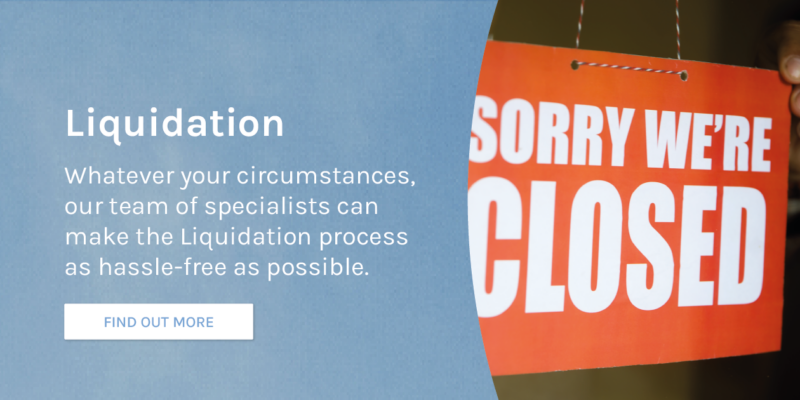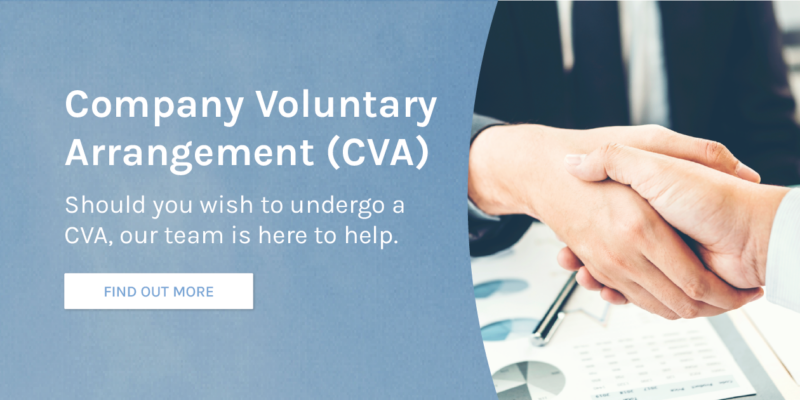Closing a limited company with debts to HMRC is an incredibly involved and complex situation.
In business, unpaid debts owed to HMRC can be a foreboding prospect. For company owners, the repercussions of this can be wide-reaching and highly stressful. HMRC’s well-earned reputation for decisive action towards reclaiming what they are owed means that directors find themselves in urgent need of resolving the situation quickly if they want to maintain some control.
In our latest blog, we will outline a number of factors that go into closing a limited company with debts to HMRC, including:
- What makes owing money to HMRC so serious
- Primary factors you need to remember if shutting down your firm
Closing a limited company with debts to HMRC can set you on your way to a fresh start free from the debts and financial pressures you have recently been faced with.
How Serious Are HMRC Debts?
If a business is experiencing financial issues, His Majesty’s Revenue & Customs are, more often than not, the primary creditor. HMRC, as a body, are also highly known to take swift and decisive action in the name of recovering their money. For this reason, if you find yourself with your backs against the wall, it’s vital that you act quickly.
Delayed action if dealing with HMRC debts could lead to them forcing you into compulsory liquidation. The act of being forced into liquidation could leave you open to penalties being brought against you personally. This is because any liquidator working on your case will carry out an in-depth and robust financial investigation behind the actions of all personnel involved in the running of the firm.
Being forced into liquidation by HMRC as a result of unpaid debts can have a number of consequences, both for individuals and businesses. These consequences include:
- Potential for Personal Liability: As mentioned above, if directors are found to have acted negligently leading up to liquidation, they could find themselves with punishments such as fines, disqualification from being a director in the future, and more.
- Credit Rating Affected: Liquidation caused by unpaid debts will have a significant negative impact on the credit rating of the company and its directors. This rating knock will make it harder to secure new lines of credit or start new ventures in the future.
- Damage to Reputation: Entering into liquidation can significantly damage the reputation of the firm and all of its directors. This can have a ripple effect on both the business should it ever be reopened, and on its directors’ ability to conduct business in the future.
It’s vital to remember that the exact consequences for both directors and a business itself after entering into liquidation will depend on your circumstances. If you’re faced with the possibility of being forced into liquidation by HMRC (or another creditor) it’s crucial to seek professional advice as soon as possible from an insolvency practitioner who can help you better understand your options and make more informed decisions for your future.
Closing Down a Limited Company With HMRC Debt: A Guide
Shuttering your business can be highly complex. However, closing a limited company with debts to HMRC can be an even more complicated, challenging process. So if you’re a company director facing the daunting prospect of unpaid taxes, it’s crucial that you navigate this situation carefully.
The main recommendations when closing a limited company with debts to HMRC include:
Always Assess The Entire Situation
This should be done for all liquidations. Before committing to any one course of action, you should obtain as clear a picture as you can of what is owed, the exact nature of the debt you owe, any interest that has accrued, associated charges, etc.
Taking the time to assess your situation will help to provide you with a solid foundation by which you can go about resolving your delicate situation.
Remain Open and Honest With HMRC
If you’re struggling with overdue debt with HMRC, it is important to maintain open and honest lines of communication with them wherever possible.
HMRC is often willing to work with individuals and businesses struggling to pay them, to come to some form of agreement that suits them. The belief behind this is that HMRC would much rather find new payment terms that will increase the chance of them actually receiving what is owed. This could allow you to keep your firm open, should you wish.
Honesty is vital when it comes to dealing with HMRC
Consider Your Options
If you’re considering closing a limited company with debts to HMRC, there are a number of different options open to you, including:
- Creditor’s Voluntary Liquidation (CVL): One of the more ‘popular’ options for insolvent businesses that are unable to pay their debts. During a CVL, the directors and shareholders voluntarily come to an agreement to wind up the company. Once this has been decided, an insolvency practitioner will be appointed to be liquidator. At this stage, assets are sold in order to repay creditors (including HMRC). A CVL is so widespread because it acts as a heavily controlled process to close your business while addressing its current debts.
- Compulsory Liquidation: This option takes the liquidation out of the director’s hands. Compulsory liquidation will come about when HMRC (or another creditor) takes formal legal action to wind up a company with unpaid debts. In this scenario, the courts will order the company’s liquidation. This process is highly controlled by the courts.
In addition to traditional liquidation methods, there are a few other things you can consider:
- Company Voluntary Arrangement (CVA): CVAs can help a business owner to restructure their debts. It entails negotiating with HMRC to find new terms.
- Administration: Administration can be an excellent method to repay creditors while also, in the long-run, rescuing the company.
Each option has pros and cons. Some lead to the closure of your business, while others could save it. If you are unsure of which step is best for you, consider contacting an insolvency expert as soon as possible.
Assess Other Factors
If you’re a director, it is important that you have considered everything. For example, if you forget that you provided a personal guarantee in the past for any company debt, you could find yourself in a very difficult position in no time — even after the company has been liquidated.
It’s vital that you leave no stone unturned in ascertaining exactly what your position is.
Inform Your Employees
If your business has employees when entering into liquidation, it is of the utmost importance that you inform them of the closure as soon as possible. You should also tell them what implications this will have for them.
To avoid further financial difficulties, you must follow all standard employment processes.
Cooperate
A director has a responsibility during the liquidation process to cooperate with the liquidator. You must respond to any and all requests for information, documents, etc.
HMRC Support You Can Count On
Resolving outstanding debts to HMRC when already faced with financial pressure requires precision, expertise, and efficiency. Acting poorly when faced with this situation can have a long-standing effect on not only the business, but also all directors, and even employees.
From potentially leading to personal liabilities to affecting credit ratings and damaging your reputation, it’s important that you resolve the situation properly and without mistakes.
An Inquesta insolvency professional will bring knowledge and years of experience in the field, to help guide you towards the best possible solution for all parties. The road to a new start does not need to be perilous and full of dead-ends.
At the end of the day, the best method of closing a limited company with debts to HMRC will depend on your situation. However, with the right guidance, and a clear strategy in place, you can retake control over your own situation and do things on your terms.
For more information about how the team of insolvency specialists at Inquesta can help resolve your situation, contact us today.





